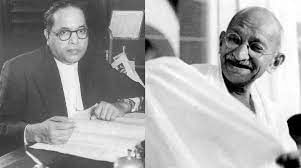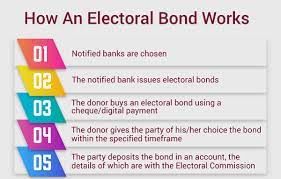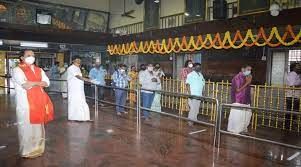UPSC Daily Current Affairs- 1st October 2023 | Current Affairs & Hindu Analysis: Daily, Weekly & Monthly PDF Download
GS-I
Gandhi and Ambedkar Dynamic
Subject: Modern History

Why in News?
Prominent figures Mahatma Gandhi and Dr. B.R. Ambedkar’s historic collaboration on the Poona Pact, addressing caste and social injustice, remains relevant in contemporary India’s ongoing debates.
Central idea
- Gandhi is indispensable. You may love him or hate him, but you can’t ignore him. As world leaders gathered for the G-20 summit, Prime Minister Narendra Modi emphasized the timeless importance of Gandhi’s ideals in shaping a harmonious global future. Gandhi’s persona transcended ideologies, making him a creed unto himself.
Gandhi’s Profound Persona
- Gandhi’s persona transcended ideologies, becoming a creed in itself. To truly appreciate his legacy, we must approach it with an open mind, free from preconceived biases. His extensive literary contributions, spanning over a hundred volumes, offer insights into his complex worldview and philosophy.
Gandhi’s Humility and Self-Reflection
- One admirable aspect of Gandhi was his recognition of his own fallibility.
- He encouraged readers to choose the interpretation of his writings that resonated with them, demonstrating courage and humility.
- His continual self-growth was evident, emphasizing his commitment to his principles.
The Gandhi-Ambedkar Dynamic
- October holds significance for both Gandhi and Dr. B.R. Ambedkar, known for their opposing views on social issues like varna and caste.
- Despite their differences, they reached a historic agreement known as the Poona Pact, which played a pivotal role in shaping India’s social landscape.
The Poona Pact: An Agreement for Inclusivity
- Historic Agreement: The Poona Pact was a significant development in Indian history. It marked an agreement reached between Gandhi and Ambedkar in Pune, India, during a period of intense discussions and debates about political representation for the depressed classes (Dalits), who were formerly known as untouchables.
- Background: Before the Poona Pact, there was a demand for separate electorates for Dalits, a move advocated by Dr. B.R. Ambedkar. This demand led to divisions and tensions within Indian society.
- Gandhi’s Fast Unto Death: Mahatma Gandhi, opposed to the idea of separate electorates, embarked on a fast unto death in protest. This fast put immense pressure on the political leaders and created a crisis situation.
- Outcome: The Poona Pact was the result of negotiations between Gandhi and Ambedkar. It led to the abandonment of the demand for separate electorates for Dalits. Instead, it introduced the concept of reserved seats (quotas) for the depressed classes within the general electorate.
- Significance: The Poona Pact aimed to secure political representation for Dalits while maintaining the unity of the Hindu community. It was seen as a compromise that prevented further division within Indian society.
- Legacy: The Poona Pact’s legacy is still felt in modern India. It introduced the system of reserved seats for Dalits in provincial legislatures and other political bodies. This system, known as scheduled castes, continues to ensure political representation for Dalits in India.
Unity Amidst Differences
- A Shared Goal:
- Though Gandhi and Ambedkar held divergent philosophical views on the foundation of caste, they both agreed on the need to eradicate untouchability and uplift the depressed classes.
- Gandhi advocated for treating untouchables on par with caste Hindus, while Ambedkar sought to eliminate the varna system entirely.
- Gandhi’s Support for the Varna System: Gandhi, inspired by Swami Dayananda Saraswati’s teachings, supported the Vedic varna system, where an individual’s qualities, actions, and nature determined their varna. He considered it a beneficent law, separate from untouchability.
- Ambedkar’s Rejection of Varna Dharma: Ambedkar vehemently opposed the Varna system, viewing it as the root of the problem. He challenged the idea that caste and untouchability were distinct issues, arguing that they were inseparable.
Ongoing Debate
- The debates surrounding caste, varna, and Sanatan Dharma (the traditional Hindu way of life) are still actively discussed in India.
- Despite the Poona Pact and other social reforms, India grapples with issues related to caste discrimination and untouchability.
- The ongoing debate reflects the complexity of India’s social fabric, with differing perspectives on how to address these issues.
Conclusion
- Gandhi and Ambedkar, despite their differences, played critical roles in shaping India’s social landscape. Their historic collaboration in the Poona Pact demonstrated a shared commitment to inclusivity and justice. The debates they ignited still resonate in contemporary Indian society, underscoring the enduring relevance of their ideas and ideals.
Source: The Hindu
GS-II
Electoral Bond Sale: Impact on Political Funding
Subject: Polity

Why in News?
The government announced the 28th tranche of Electoral Bond sales, scheduled to take place over a ten-day span at authorized branches of the State Bank of India.
Why discuss Electoral Bonds?
- Impact on Political Funding: The announcement of the upcoming electoral bond sale has implications for political funding in India. As part of the government’s efforts to reform the political financing system, electoral bonds aim to bring transparency and accountability to campaign financing.
- Upcoming Elections: The timing of the sale window aligns with the upcoming assembly elections in some States, highlighting the significance of electoral bonds in shaping the financial landscape of political campaigns.
- Continued Scrutiny: The use and impact of electoral bonds continue to be a subject of debate and scrutiny, with stakeholders assessing their role in enhancing or altering the political funding ecosystem in the country.
About Electoral Bond Scheme
| Definition | Banking instruments for political party donations with donor anonymity. |
| Purchase Method | Available to Indian citizens and Indian-incorporated companies from select State Bank of India branches. Can be bought digitally or via cheque. |
| Donation Process | Purchasers can donate these bonds to eligible political parties of their choice. |
| Denominations | Available in multiples of ₹1,000, ₹10,000, ₹10 lakh, and ₹1 crore. |
| KYC Requirements | Purchasers must fulfill existing KYC norms and pay from a bank account. |
| Lifespan of Bonds | Bonds have a 15-day life to prevent them from becoming a parallel currency. |
| Identity Disclosure | Donors contributing less than ₹20,000 need not provide identity details like PAN. |
| Redemption | Electoral Bonds can be encashed only by eligible political parties through an Authorized Bank. |
| Eligibility of Parties | Only parties meeting specific criteria, including securing at least 1% of votes in the last General Election, can receive Electoral Bonds. |
| Restrictions Lifted | Foreign and Indian companies can now donate without disclosing contributions as per the Companies Act. |
| Objective | To enhance transparency in political funding and ensure funds collected by political parties are accounted or clean money. |
Source: Indian Express
Debate over Temple Priest Appointments in Tamil Nadu
Subject: Polity and Governance

Why in News?
The Supreme Court has issued an order for maintaining the current state of affairs regarding the appointment of archakas (priests) in Agamic temples in Tamil Nadu.
- The reforms introduced by the ruling government, aiming to change the hereditary system of appointing archakas, have faced opposition from the association of archakas.
Why discuss this?
- Such appointments violated religious rights protected under the Constitution, emphasizing the need for rigorous training under experienced Gurus to comprehend the significant religious practices of the Agamas.
Government and Judicial Actions
The debate over temple priest appointments in Tamil Nadu has evolved over the years, with several key actions shaping its course:
- 1971 Amendment: In 1971, the DMK government, led by Chief Minister M Karunanidhi, amended the Tamil Nadu Hindu Religious & Charitable Endowment (HR & CE) Act. This amendment abolished hereditary priest appointments and allowed individuals from all castes to become priests.
- 2006 Declaration: In 2006, the government declared all qualified individuals eligible to be priests. However, this move was challenged in the Supreme Court, which, in 2015, emphasized the importance of adhering to Agama Sastras while safeguarding constitutional rights.
- Gender Equality: In a landmark ruling in 2009, the Madras High Court favored a woman priest from Usilampatti, Madurai, who faced opposition from male priests regarding her inherited right to conduct puja at a temple. The court underscored the need to eliminate gender bias from temples to fulfill constitutional mandates.
- Inclusivity: The Supreme Court’s rulings in the Guruvayoor Devaswom Case (2004) and the N Adithayan case (2002) upheld the appointment of non-believers and non-Brahmins as temple priests, emphasizing inclusivity and non-discrimination.
Complex Divine Contradictions
Despite the legal framework and the abolition of hereditary priest appointments, the Agama tradition continues to influence temple administrations in Tamil Nadu. This persistence has given rise to debates and challenges:
- Regional Variations: Similar debates have emerged in Kerala, where questions have been raised about why only Hindu temples are under government control, while churches and mosques are not. Tamil Nadu has also witnessed campaigns for temple “reclamation.”
- Historical Shift: During the colonial era, British officials’ involvement in Hindu rituals raised concerns among Christian establishments in India. This led to the transfer of temple control to local communities. In 1951, the HR & CE Act limited government involvement to administration and finance.
- Friction between Tradition and Modernity: The ongoing tensions between traditional practices and modern principles are exemplified by debates over hereditary priest rights and resistance to the entry of women into the Sabarimala temple. These issues defy simple solutions.
What about Religious Freedom?
- Complexity of Hinduism: A prominent temple priest in Chennai argued that rules applied to other faiths may not directly apply to Hinduism. Hinduism is characterized by its diversity of traditions, contradictions, and numerous deities. Temples are perceived as centers of “soul energy” with unique purposes and practices.
- Role of Empathy: The priest emphasized the importance of empathy when dealing with matters of faith. Logic and reasoning cannot always apply to beliefs deeply rooted in tradition and spirituality. He highlighted the significance of experiential concepts, dedication, and the unique nature of temple administration.
- Agama Sastra Expertise: The priest pointed out that learning Agama Sastra in a year does not equip an individual to manage a temple. Temple administration is a combination of experiential concepts, ideas, and dedication, distinct from running a company. Agama Sastra is not a simple manual but a profound tradition.
Conclusion
- The debate surrounding temple priest appointments in Tamil Nadu remains complex, reflecting the ongoing struggle to balance tradition with modern principles.
- It highlights the challenges in applying uniform rules to diverse faiths and underscores the profound significance of temples in Hinduism.
Source: Indian Express
GS-III
Financial Stability Board (FSB)
Subject: Economy
Why in News?
The Financial Stability Board (FSB) is launching a probe into the buildup of debt outside traditional banks, as it seeks to limit hedge funds’ borrowing and boost transparency.
- FSB was established by the G20 in 2009 in the wake of the financial crisis.
- Mandate: It was created expressly to coordinate at the international level the work of national financial authorities and international standard-setting bodies and to develop and promote the implementation of effective regulatory, supervisory, and other financial sector policies in the interest of financial stability.
- The FSB brings together national authorities responsible for financial stability (central banks, supervisory authorities, and finance ministries), international organisations, and standard-setting bodies.
- The FSB operates by monitoring, analyzing, and making recommendations on key aspects of the financial system. It assesses emerging issues that could impact global financial stability.
- The FSB’s decisions are not legally binding on its members.
- Headquarters: Basel, Switzerland.
- Members:
- The FSB consists of 68 member institutions. It comprises several central banks, ministries of finance, and supervisory and regulatory authorities from 25 jurisdictions, as well as 10 international organizations and six Regional Consultative Groups (RCGs).
- The board includes all G20 major economies.
- Structure:
- The Plenary, which serves as the sole decision-making body.
- The Steering Committee, which takes forward operational work in between plenary meetings.
- Three Standing Committees, each with specific but complementary responsibilities.
- India and FSB: India is an active member of the FSB, having three seats in its Plenary represented by the Secretary (Dept of Economic Affairs), Deputy Governor-RBI, and Chairman-SEBI.
Source: Indian Express
Dawn of Passkeys: A Password- Free Future (FSB)

Why in News?
Why discuss this?In 1961, MIT computer science professor Fernando Corbato introduced the world to digital passwords, an innovation designed for research purposes. Little did he know the profound societal impact his creation would eventually wield.
- Passwords have become nearly synonymous with cybersecurity in the 21st century, albeit with an unsavory connotation.
- Despite efforts to promote robust password practices, “password” and “123456” continue to dominate the list of common passwords, underscoring the pervasive vulnerability of most accounts.
- Ineffectiveness of Passwords: The prevailing authentication method, based on passwords, falls short in ensuring adequate security.
- Big Tech Solution: In response to this predicament, major tech companies propose a solution – passkeys.
- Web Authentication Standard: Passkeys are a security feature built on the WebAuthentication (WebAuthn) standard.
- Public-Key Cryptography: Passkeys employ public-key cryptography, a potent technique employing a public key (server-side) and a private key (user-side).
- Authentication Process: When users log in, a challenge is sent to their device, which utilizes the private key to solve it and respond. The server then validates the response with the public key, all without storing any secrets, enhancing security.
- Wide Compatibility: Leading tech companies, including Microsoft, Google, and Apple, have collaborated to make passkeys accessible to most recent phones and PCs.
- Operating Systems: Passkeys are available on iOS 16+, iPadOS 16+, macOS Ventura, Android 9+, Windows 10, and Windows 11.
- Web Browsers: Passkeys are supported on popular browsers like Chrome, Edge, Safari, and Firefox.
- Account Requirement: Users need an account with a provider supporting passkeys, such as Microsoft, Google, or Apple.
- Activation Process: To enable passkeys, sign in to a compatible app or website, activate the passkey option, and obtain a unique passkey linked to your account and device.
- Usage: Passkeys can be used with biometrics (e.g., Touch ID, Face ID), QR codes, or device verification.
- Inevitable Evolution: While passkeys offer notable advantages over traditional passwords in terms of security and user-friendliness, they still face challenges related to compatibility and user adoption.
- Industry Push: Notably, Google, Apple, and Microsoft are driving the passkey agenda strongly, suggesting that passwords may eventually become obsolete.
- A Security Evolution: The emergence of passkeys as an alternative to traditional passwords marks a significant shift in the realm of cybersecurity.
- Ongoing Transition: As passkeys gain momentum and garner support from tech giants, they may gradually pave the way for a password-free future, promising enhanced security and user convenience in the digital realm.
Source: Indian Express
Kalakkad-Mundanthurai Tiger Reserve
Subject: Environment and Ecology
Why in News?
The Madurai Bench of the Madras High Court recently ordered notice to the State on a public interest litigation petition that sought a direction to restrict the entry of outsiders and vehicles inside Kalakkad-Mundanthurai Tiger Reserve.
- Location: It is located in the Southern Western Ghats in the Tirunelveli and Kanyakumari districts of Tamil Nadu.
- It was established as a Tiger Reseve in 1988.
- This reserve is a mixture of three main sanctuaries: Kalakad Sanctuary, Mundanthurai Sanctuary, and a part of Kanyakumari Sanctuary.
- Nestled between Kerala and Tamil Nadu, the Agastya Malai Hill Range forms the core area of the sanctuary and is part of one of the world's 18 biodiversity hotspots.
- The reserve is also known as the “River Sanctuary”, with as many as 14 rivers originating from this Tiger Reserve.
- Terrain: Undulating with several valleys and porous rocks.
- Vegetation:
- It varies from thorny shrub jungles to lush evergreen forests.
- In addition to forests, savannah woodlands, and grasslands, there are tea and coffee plantations within the reserve.
- Flora: Important species include Sarcandra, Paphiopedulum, druryi, Hopea parviflora, Hopea utilis, Calophylum elatum, Cullenia exarillata, etc.
- Fauna: Tiger, leopard, rusty spotted cat, wild dog, sloth bear, elephant, gaur, sambar, spotted deer, mouse deer, nilgiri langur, slender loris, bonnet macaque, lion tailed macaque, etc.
Source: Hindustan Times
|
38 videos|5264 docs|1112 tests
|
FAQs on UPSC Daily Current Affairs- 1st October 2023 - Current Affairs & Hindu Analysis: Daily, Weekly & Monthly
| 1. Who was Mahatma Gandhi and what were his contributions to India's freedom struggle? |  |
| 2. Who was Dr. B.R. Ambedkar and what role did he play in shaping modern India? |  |
| 3. How did the ideologies of Gandhi and Ambedkar differ in their approach towards social reform? |  |
| 4. What were the key principles of Gandhi's philosophy of Satyagraha? |  |
| 5. How did Gandhi and Ambedkar's efforts contribute to the formation of a modern and inclusive India? |  |
















